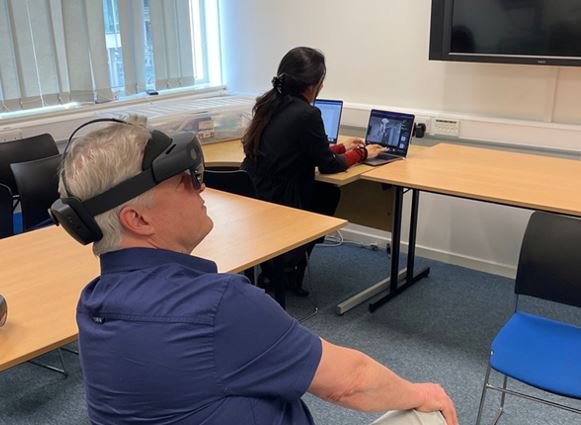Name
Miss Rukhnoor Malik, MBBS, BSc (Hons)
Mr Jonathan R Abbas, MBChB MRCS(ENT)
Mr Ceyon Jeyarajah, MBChB MRCS(ENT)
Prof Iain Bruce, MD FRCS (ORL-HNS)
Prof Neil Tolley, MF, FRCS, DLO
Correspondence email address
Jonathan.abbas@postgrad.manchester.ac.uk
Supervisors
Prof. Neil Tolley
Mr Jonathan R Abbas
External collaborators or collaborating institutions
Imperial College London, UK
Social media handles listed
Summary of project
Background: The Covid-19 pandemic has caused unprecedented disruptions to medical education, culminating in widespread cancellations of clinical and academic activities. Education in medical specialties such as Ear, Nose and Throat saw multiple challenges, including reduced bedside teaching and ‘hands-on’ training opportunities at both undergraduate and postgraduate stages. Thus, educators are turning to technological advancements to provide effective remote medical education. This study investigated the value and potential of using the most advanced mixed reality headset, Microsoft HoloLens2TM, in remote case-based medical education.
Methods: This pilot study recruited undergraduates from four different UK medical schools. We presented either conventional or HoloLens2TM enhanced remote case-based teaching with standardised material to medical students (n=56) in small-group sessions. We then measured student learning outcomes, engagement and satisfaction using assessments, tally-mark systems and feedback questionnaires.
Results: HoloLens2 enhanced teaching was broadly engaging, encouraged questions (4 vs 1 questions per session; p=0.04) and improved performance (12- vs 9-mark increase per student; p<0.001) compared to conventional remote case-based teaching. The majority of the students receiving HoloLens teaching agreed that the teaching was enjoyable, effective in demonstrating concepts, encouraged them to interact in sessions and engage with content. However, they did not think it replaced face-to-face teaching completely.
Discussion: This study is a pioneering example of using advanced technologies such as Microsoft HoloLens2TM in medical education and highlights the potential benefits of deploying it in situations such as the ongoing pandemic. However, the technology is not without its limitations. These need to be addressed before HoloLens2 can be implemented into medical education.
Conclusions: Remote teaching has allowed for the continuation of medical education in uncertain times. Beyond Covid-19, we predict that there will be a paradigm shift towards remote learning as new technological advancements emerge. These novel technologies may prove invaluable for medical education in the future.
National or international presentations
17th September 2021, ENT UK Autumn Meeting 2021, London, UK
4th October 2021, North of England Otolaryngology Society Autumn Meeting, UK
Prizes or other notable achievements
ENT UK, Rowana Ryan Paper Knife Award, 2021
North of England Otolaryngology Society, George Seed Prize, 2021
University of Manchester Core Goals and Themes

